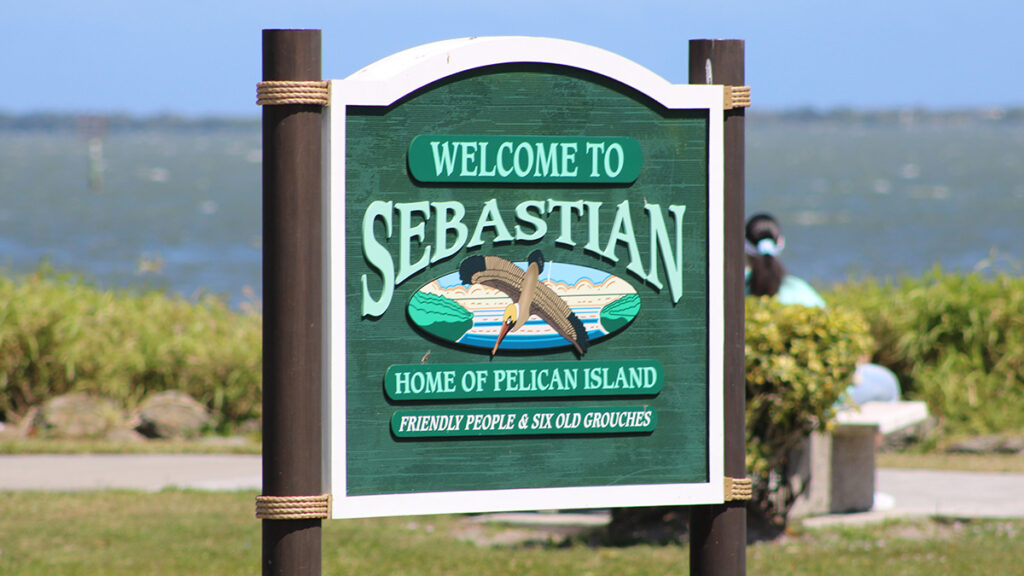The Pelican Island Audubon Society has filed a lawsuit against the City of Sebastian by asking the court to reject the annexation approved last March by the City Council.
The plaintiff’s attorney, George Glen Jr., refused to comment. In addition, city officials wouldn’t comment due to pending litigation.
Also named as plaintiffs in the lawsuit are Graham Cox and Donna Halleran, Directors of the Pelican Island Audubon Society. The lawsuit states they will suffer “material injury” by the City’s refusal to allegedly comply with state law regarding the annexation of the Graves Brothers’ property.
“The City made no attempt to quantify the impact from this massive increase in density and intensity, but it is clear that such an increase would create negative impacts for roads, parks, and the slough of headwaters of the St. Sebastian River that runs through the annexed property,” according to the lawsuit.
The plaintiffs allege the annexed property “contains an environmentally important slough that forms the headwaters to the South Prong of the St. Sebastian River” and emphasize the St. Sebastian River “flows directly into the Indian River Lagoon.”
Another argument is about the high density approved by the City Council, which could allow up to 10,794 total units when developed, far different than the county’s land use of no more than 400 units under the agriculture zoning. Under the county’s control, the property was zoned for agriculture, only allowing one unit for every five acres.
However, Graves Brothers President & CEO Jeff Bass stated during Sebastian City Council meetings that the property would be zoned for higher density, whether left in the county or annexed into the City of Sebastian.
The Pelican Island Audubon Society also argues that the City of Sebastian first annexed a 67-acre landholding of the Graves Brothers in 2018 and already discussed plans with staff on proceeding with future annexations.
To further make their case, the plaintiffs also allege the “City departed from the essential elements of the law because the Annexed Lands fail the statute’s requirement that the annexation of lands be contiguous and compact.”
In addition, the lawsuit alleges that the City “deliberately set forth on a path to shoestring annexations from a single landowner” from 2018 when the City annexed the 67 acres. They accuse the City and the property owner of “shoestring annexations to skirt the statutory requirements on annexations” to defeat “the basic concept of a municipal corporation of unity and compactness.”
According to the lawsuit, the Pelican Island Audubon Society board has a “reasonable belief that the organization and its members will suffer material injury by the city’s refusal to comply with state law regarding the annexation of the annexed property.”
“It is clear from the maps that the 2,000-acre annexation will be a separate, distinct mass of land. It shares very little boundary with Sebastian’s existing limits, is separated by undeveloped county property, and will be mostly surrounded by rural county land with the same county land use and zoning that this property had prior to its annexation and land use change. The annexation agreement executed by the City calls for 20-40% of commercial and other non-residential uses because this area is not intended to be an extension of the existing Sebastian limits, rather a standalone city adjacent to the exciting City,” the lawsuit states.
The plaintiffs also allege the annexation does not present clear northern, southern, eastern, and western boundaries and that the City “purposely” planned to piecemeal this and other annexations with the Graves Brothers.
In 2019, the Pelican Island Audubon Society sued the City and eventually won the case over a minor technicality involving a map.
Annexation
The 2,044-acre Sebastian annexation is between the City of Sebastian and the property owner. The City has annexed property with the Graves Brothers over the past 100 years.
The annexation is needed for the City of Sebastian to expand and control its growth. The property is mixed-use, with plans to build residential, and commercial for sustainability. About 5-10% of the property will be for affordable housing.
The annexed property will have a green buffer zone around its borders to help protect the environment.
The annexation provides a tax base for maintaining roads, parks, and boat ramps. Otherwise, the new county residents would pay nothing to the City of Sebastian while using all of its resources.
Richard Baker, president of the Pelican Island Audubon Society, told the council earlier this year that the property should be left in the county and not annexed into Sebastian.
Sebastian residents supporting the annexation claim the environmental groups have looked the other way when the county has developed all around the City, including areas near the headwaters of the St. Sebastian River. They allege the non-profits remain quiet because they receive county funding and office space.
